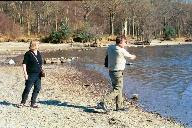The almond blossoms are starting to come out. The almonds won’t be ready to pick until July or August, though, so we won’t be around for the harvest. Walnuts and peanuts (a pulse, not a nut, but anyway…) also grow in Cyprus but have no idea where or in what quantity. Think in the North they’re more likely to be imported from Türkiye, though J spotted walnuts at the Famagusta market in a large sack claiming to be from the US. Somewhat before the current tariff blight.
Bananas also grow in Cyprus - and in Türkiye - and there are currently fears that there has not been enough rain to guarantee a harvest. Both North and South also supplement the banana supply with Latin American imports (Dole). The odd thing is that when they sell both the price is often the same, although presumably the Dole bananas are much more expensive to obtain.
Do a search to see the harvest times of various Cypriot fruits and find the descriptions on a Russian site, with some delightfully quirky information of the lost in translation sort:
Of the fig - “It has a number of useful properties, but is also forbidden to people with some features”. Big noses?
Of carob - You can make syrup from the pods. “Try traditional Cyprus unsalted anari with nuts, sprinkled with syrup on top. It turns out very mentally “. Considering that anari is a tasteless fresh whey cheese with no redeeming merits, very mentally seems about right for anyone choosing it. Would seem a shame to waste the carob syrup and nuts, though. Actually we do eat carob syrup along with fruit and honey on our morning yoghurt. Very nice too.
Carobs also have an interesting non food history, which one might - but probably wouldn’t - guess from the name. The seeds are so regular, with a fixed mass of 0.2 grams, even when dried, that they were used historically when weighing precious stones or pearls. Thus the word carat is derived from the Italian for carob - carato.





